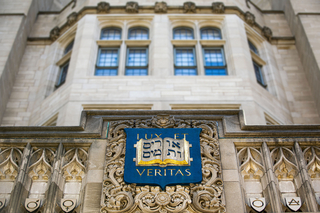Restoration and Climate Data Analysis Intern
With the growing consensus that nature can provide at least 30% of the climate mitigation needed to limit warming to 1.5°C, and the recognition that carbon removals from reforestation and restoration are the only scalable ‘technologies’ we have today to remove carbon dioxide from the atmosphere, many global initiatives have enabled commitments for restoration. As a core component of its Climate Strategy, Conservation International has set ambitious targets for scaling restoration globally as a climate solution, demonstrated through our large restoration portfolios, spanning implementation in over 20 countries.
The Bekenstein intern will support CI’s global restoration work through coordination with CI’s Restoration Project Specialists, NCS Design & Impact Senior Manager, CI’s field teams, and other CI staff to manage incoming restoration data to inform project progress and contribute to program delivery objectives. The intern will work to improve the efficiency of data analyses for tree planting data from Brazil and Colombia, including optimizing data analyses for biomass data used in carbon sequestration calculations. The intern will also examine ways to reduce the level of effort for monitoring trees in the field by leading a comparison of results from field monitoring and remote sensing and developing a process to automate power analyses. The intern will facilitate conversations with the CI’s restoration team to refine methodologies and share results and will create documentation of their work so it can be reproduced in the future. The intern’s contributions will increase the efficiency of CI’s restoration monitoring team, allowing more focus on planting additional trees and sequestering more CO2.
Qualifications
- Fascination with restoration, landscapes, forests, and reforestation.
- Strong data management and analysis skills and an interest in applying them to restoration data.
- Advanced coding proficiency in R.
- Ability to use ArcGIS software.
- Strong organizational skills and attention to detail.
- Strong writing, communication, and interpersonal skills.
- Proficiency in Microsoft 365 tools.
- Ability to work effectively with multicultural, multidisciplinary teams worldwide, including CI staff and partners.
- Willingness and capacity to navigate diversity, equity, and inclusion challenges and opportunities.
Additional desired qualifications:
- Experience in Power BI.
- Language ability in Spanish, Portuguese, or French.
- Experience with tools for conducting surveys such as Survey123, KoboToolbox, or similar.
Timeline
- Weeks 1-4: Data analyses for tree planting data from Brazil and Colombia
- Fix errors in existing scripts in R and modify script as needed to organize data into a usable format
- Run baseline analyses for the number of trees and biomass
- Share results with restoration teams in Brazil and Colombia to ensure data format is acceptable and results are understandable
- Document processes
- Weeks 5-8: Compare results from field monitoring to remote sensing results
- Convene working group from CI and our partner WRI to align on the best approach
- Lead development of R script comparing field and remote sensing results
- Run analysis for projects worldwide and share results with working group. Refine approach as needed
- Document processes
- Weeks 8-12: Automate power analyses
- Work with Restoration Project Specialist to understand current power analysis approach
- Develop script that can automate or semi-automate power analyses
- Run power analyses for projects with necessary data
- Share results with restoration project teams
- Document processes
Background
Since 1987, Conservation International has worked to spotlight and secure the critical benefits that nature provides to humanity. Combining fieldwork with innovations in science, policy and finance, we’ve helped protect more than 6 million square kilometers (2.3 million square miles) of land and sea across more than 70 countries.
Conservation International’s approach to conservation puts human well-being on equal footing with environmental goals. We respect human rights, ensure our programs are designed with gender equality in mind and create opportunities for local communities to earn a living while also helping nature.
Our work is focused on four pillars:
- Innovations in Science - Conservation International is behind some of the most extraordinary, cutting-edge conservation science taking place today. Our research is cited more than leading universities.
- Innovations in Finance - From our launch of the world’s first debt-for-conservation swap in 1987, Conservation International is changing the equation to make nature more valuable alive than destroyed.
- Partnering with Communities - Respecting the rights of Indigenous people and local communities was one of our founding principles, and it guides our work to this day.
- Working with Governments - Our science and expertise are helping governments take action to protect nature and the benefits it provides to people.
More information found here
